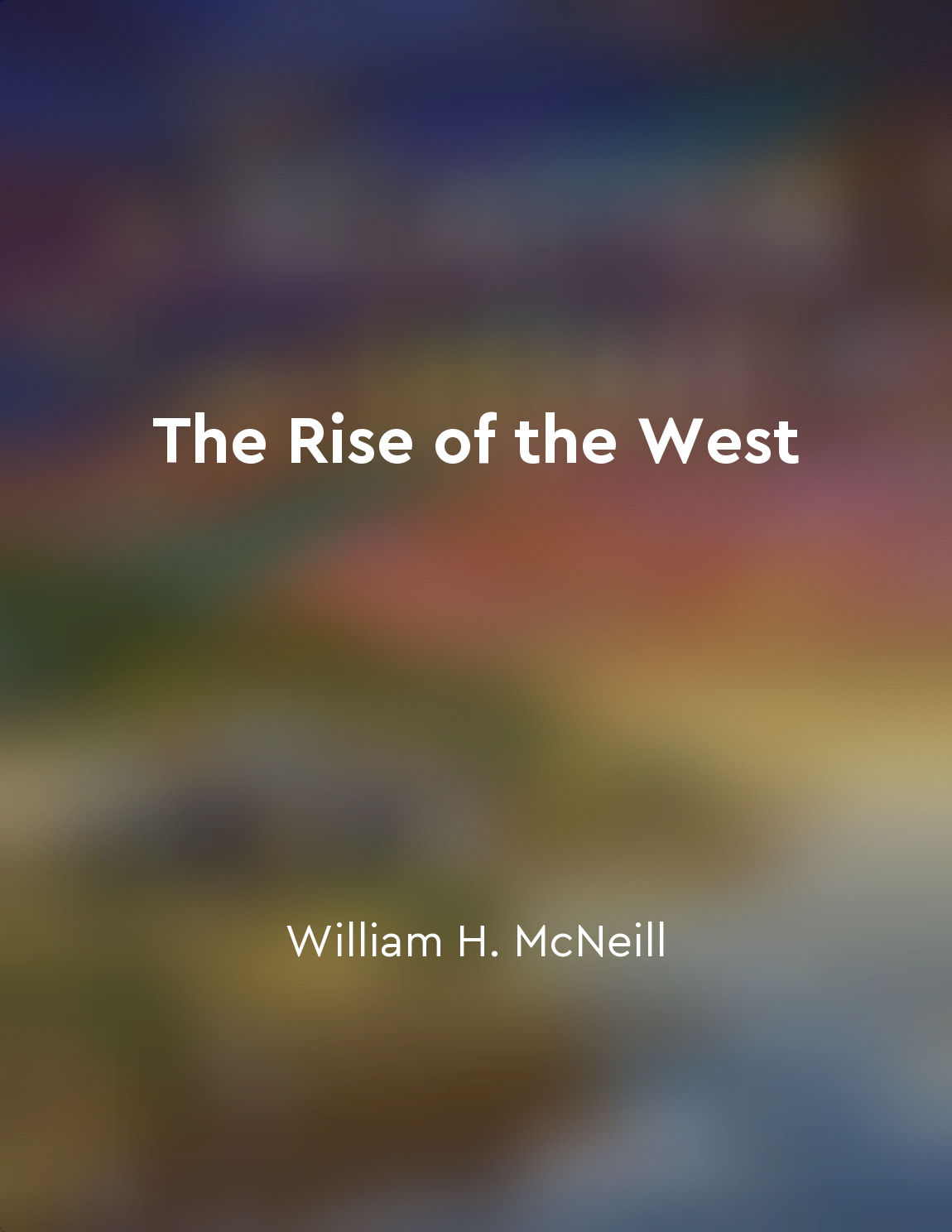Military conquests alter societal structures from "summary" of Guns, Germs, and Steel: The Fates of Human Societies (20th Anniversary Edition) by Jared Diamond
Military conquests have played a crucial role in shaping the societal structures of human civilizations throughout history. When one society conquers another, it often leads to the establishment of a new power dynamic that can have far-reaching consequences. The conquerors impose their own laws, customs, and language upon the conquered people, fundamentally altering the social fabric of the society. Moreover, military conquests often result in the redistribution of resources and wealth, as the victors seize control of land, labor, and other valuable assets. This can lead to the concentration of power in the hands of a few elite individuals or groups, further exacerbating social inequalities within the conquered society. In addition, military conquests can also bring about cultural changes as the conquerors introduce new technologies, beliefs, and practices to the conquered population. This cultural exchange can lead to the assimilation of certain aspects of the conquerors' culture into the conquered society, creating a blend of traditions and customs that shape the identity of the society moving forward. Furthermore, military conquests can have long-lasting effects on the political and economic structures of a society. The establishment of new governing institutions, taxation systems, and trade networks by the conquerors can significantly alter the way society functions, leading to a restructuring of power relations and economic activities.- The impact of military conquests on societal structures is profound and enduring. These conquests shape the course of history by influencing the social, political, economic, and cultural development of societies around the world. The legacy of conquests can be seen in the way societies are organized, governed, and interact with one another, highlighting the lasting consequences of military conflicts on human civilization.
Similar Posts
Environmental factors affect inequality
The impact of environmental factors on inequality is profound. Different levels of access to resources such as clean water, ara...

Control the emotions of others to control the situation
To achieve power and control over a situation, one must first learn to master the emotions of others. Emotions are a powerful f...
Political systems develop in response to environmental challenges
Political systems are not static entities; they evolve and adapt to changing environmental circumstances. The challenges posed ...

Economic growth leads to societal changes
Economic growth, as I have sought to demonstrate in this work, has played a crucial role in shaping societies throughout histor...
Environmental factors impact societal progress
The idea that environmental factors play a crucial role in shaping the progress of societies is a fundamental concept in unders...
The individual is part of a larger whole
In every living organism, from the simplest to the most complex, it is possible to observe a fundamental unity of structure and...

Climate change became a pressing concern
The changing climate of the Earth became a topic of great concern as time went on. People began to notice unusual weather patte...

